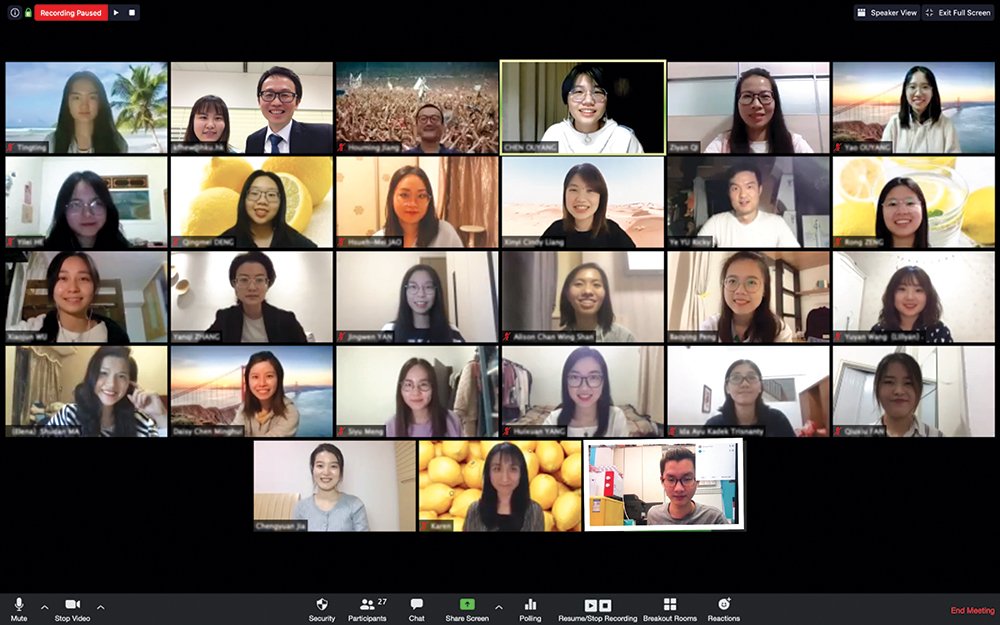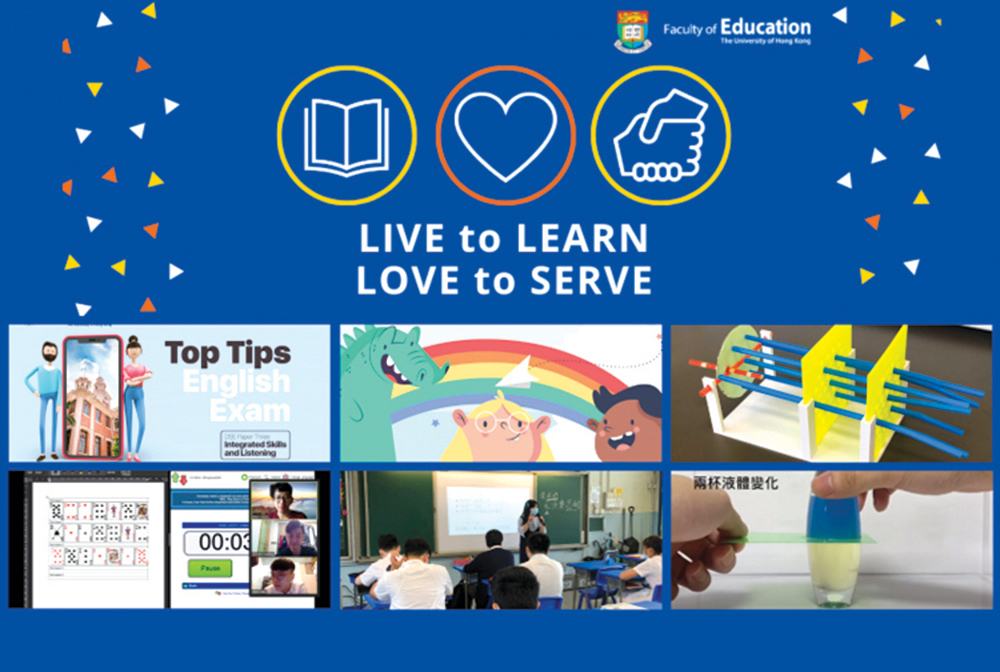November 2020 | Volume 22 No. 1
Lessons from E-Learning
Asking teachers to show their faces is an unlikely takeaway from research into online learning. Yet that is what Dr Timothy KF Hew of the Faculty of Education has discovered in the case of MOOCs.
Dr Hew has studied some of the world’s top-rated MOOCs and did a textual analysis of feedback from more than 4,000 students, and found that putting a face to a voice and name was a key indicator of success because it signals teacher engagement. He believes the same principle could extend to online learning during the ongoing COVID-19 pandemic – for both teachers and students.
“A sense of connection to other humans is important for effective learning and this applies to online social presence, too. If you show your face, then participants feel they are actually listening to and talking to a real person, not a blank screen. If everybody shows their face, it becomes a simple yet powerful way to heighten social presence,” he said.
Dr Hew has required all students to keep their webcams on in his online teaching this year and received positive feedback. “At first it was not so popular with some students, but later they said it made them sit up straighter and pay more attention. They felt more engaged when they could see other people and looked at the computer screen rather than their phones.”

Dr Hew and his students in his online class.
‘Bite-sized’ learning
Using technology to deliver learning has been a focus of Dr Hew’s research for two decades. He studied software engineering before switching to education in his postgraduate studies and about 10 years ago started studying MOOCs. His main studies were published before the pandemic, but the findings are pertinent enough that one publisher has made one of his studies freely available online this year to help educators who are grappling with online teaching and learning.
Dr Hew has identified five important factors for online learning through MOOCs, including instructor accessibility and passion. Some of these parallel successful factors for in-person learning.
Top of the list is problem-oriented learning because it helps students derive meaning from the content. Dr Hew suggested teachers provide assignments where students can apply their learning and consider inviting guest speakers. For example, one MOOC on poetry invites a poet as guest speaker and arranges for students to send in questions.
Related to this is active learning, which helps sustain students’ attention. This can entail frequent short quizzes over the course of a lesson, student reflections, or doing a version of the ‘flipped’ classroom where students do readings or watch a video before the online class, then apply that learning in class.
“The worst thing you can do is talk for two hours in front of the camera – everybody falls asleep in the first few minutes. It’s better to talk for a few minutes then interrupt the video with questions that need to be answered before continuing to the next video. Or give students a question to discuss or a game to complete,” he said.
“I call this ‘bite-sized’ learning. It also can provide automatic feedback, which helps sustain students’ attention and therefore helps them learn.”
Just as good
Dr Hew acknowledges that the experiences of MOOCs are not always directly applicable to regular university classes, where students pay to attend, are expected to show up for class and receive grades at the end. But that means MOOCs face more challenges in keeping students’ attention.
He has applied many of his findings to his own recent online classes, including keeping webcams turned on, inviting guest speakers, flipping classes, keeping his talking times brief and letting students take a short break every 30 to 45 minutes during longer classes. He also advocates having regular ‘office’ hours online so students can contact their teachers one-on-one. Looking ahead, he is developing gamification and other strategies for future classes.
“Many people think online learning is the weak option compared to face-to-face teaching. But if done properly, it can be just as good,” he said, pointing to a comparison he did between students who did his fully online class in the first part of 2020 and those who completed the same class mostly face-to-face class in the previous semester.
“Their grades were similar – they performed just as well even though one group attended classes fully online,” he said. “My biggest advice to teachers is to be more open and do not automatically think online teaching is inferior. It can be even more engaging than face-to-face.”
My biggest advice to teachers is to be more open and do not automatically think online teaching is inferior. It can be even more engaging than face-to-face.

DR TIMOTHY KF HEW
EDUCATION FACULTY OFFERS SUPPORT
Since the COVID-19 pandemic set in, the Faculty of Education has launched the ‘LIVE to LEARN, LOVE to SERVE’ Campaign with its staff and students offering advice and other help related to online learning, such as producing seven sets of physics teaching materials, providing real-time tutoring and tips for HKDSE [Hong Kong Diploma of Secondary Education Examination] students, offering workshops on doing creative projects and science experiments at home, and sharing online teaching experiences.

Learn more about the ‘LIVE to LEARN, LOVE to SERVE’ Campaign at https://web.edu.hku.hk/community/school-university-partnerships/others

